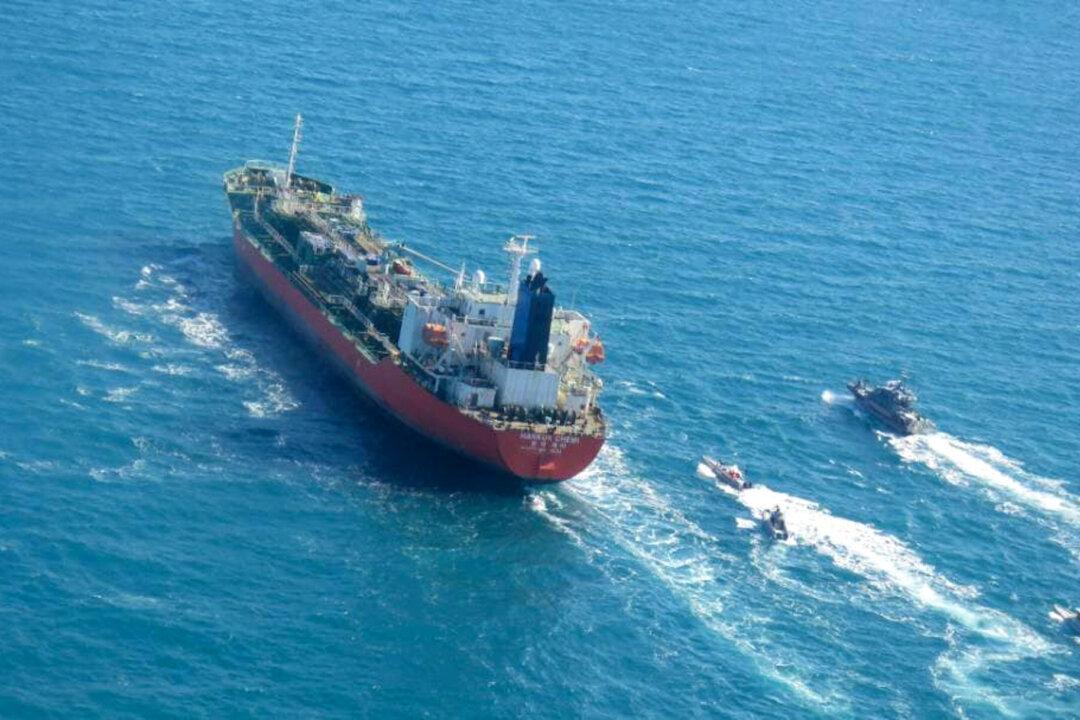Iran said it wasn’t taking a South Korean oil tanker and its sailors as hostages, a day after its naval unit seized the vessel in the Gulf waters while demanding Seoul release billions of dollars in Iranian money frozen due to U.S. sanctions.
Iran’s Islamic Revolution Guards Corps on Monday intercepted and captured the MT Hankuk Chemi, a South Korean-flagged tanker, and detained its 20-member crew, citing “environmental and chemical pollution concerns.”





